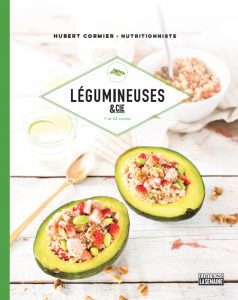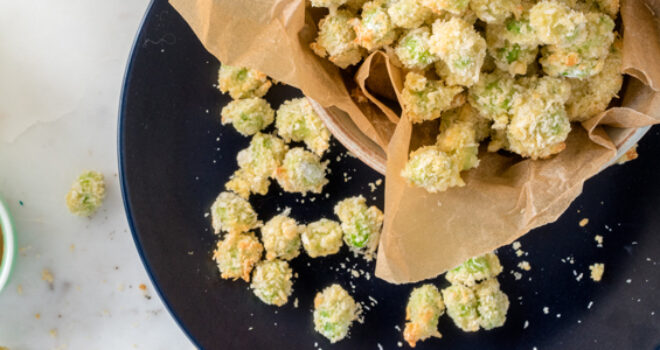Pulses are making a comeback and seem to be all over the media lately. First and foremost, because of their nutritional benefits, but also because of their ecological footprint and their excellent price-quality ratio. And according to Hubert Cormier, the well-known lecturer, nutritionist, researcher and blogger from Quebec, you will get just as much pleasure from eating pulses as from other foods. So, how about saving Mother Earth one spoonful at a time?

Everyone knows Hubert. In just a few years, the dynamic, affable and passionate nutritionist has become a key figure in media and nutrition circles in Quebec. He has written several bestsellers, conducts research in nutrition, contributes to TV and radio programmes and gives lectures…
He has many talents and is widely appreciated because he succeeds in making nutrition easier to understand and accessible for everybody. Which is why the Louis Bonduelle Foundation met with Hubert to discuss a subject he is really passionate about, namely pulses.
Pulses are often presented as sustainable superfoods, which can help fight hunger in the world. And yet people are slow on the uptake and, in fact, consumption is even continuing to decline. How do you explain this discrepancy?

I think it’s all due to people’s lack of culinary education. People are no longer taught the essentials of cooking and young people consider convenience food a much easier solution. The vegan and flexitarian trend, meanwhile, is growing fast, leading me to believe that the future will soon be brighter for pulses.
To make them a staple on our menus again, we must raise people’s awareness about the importance of a diet that includes more plant-based foods, while also explaining that these foods can be used as an ingredient in our daily meals, including in meat-based dishes.
This is an interesting tip because people often don’t realise a dish contains pulses, when they are mixed with meat.
What do you think are the benefits and disadvantages of cooking with pulses? How can we make them “sexier” and interest younger consumers in them again?
Pulses have several health benefits. You can also use them as a substitute for flour, as part of a gluten-free diet. They tend to be less sexy because they often cause gastrointestinal problems in consumers who don’t eat legumes that often. People complain about cramps, flatulence or feeling bloated after eating pulses.
So, they are just not as sexy as other vegetables. I personally don’t have any of these problems any more but that’s because I eat them regularly. You must also rinse tinned pulses carefully and soak dried vegetables overnight.
In your book “Légumineuses & Cie”, you point out how versatile pulses are, including as a meat substitute. Can you tell us more about this?

They are incredibly versatile, because you can use them as an ingredient for breakfast, lunch, dinner, snacks and even dessert. That is exactly what I set out to prove with my book Légumineuses & Cie. I wanted to show everybody that cooking with legumes is easy. You can soak a large quantity of pulses overnight and use them throughout the week, for several meals.
As far as meat is concerned, you can substitute part of your meat with the same quantity of pulses, gram for gram, allowing you to reduce the amount of saturated fats, which are bad for your cardiovascular health anyway, while adding fibre and maintaining the protein content of your recipe. I really think it’s a win-win option.
The new edition of Global Burden of Disease, which The Lancet published in September, puts pulses in the top 15 of foods we should be eating to reduce the risk of cardiovascular disease. What do you think, in light of your nutritional research?
I’m not at all surprised. Pulses have always been on the list of best foods to eat, because they are such a good source of dietary fibre and protein. They contain plenty of vitamins and minerals and have long been said to have plenty of health benefits.
While I was doing my PhD, I spent a lot of time researching nutritional profiles. Pulses fall into the so-called “prudent” food category, like vegetables, fruit, nuts, fish and yoghurt. People who consume a lot of foods with this food profile are usually much healthier.
To find out more about Hubert Cormier’s book, read our article here
Discover his latest book, “Les conseils d’Hubert”, which features over 500 tips and recipes, so you can enjoy the pleasure of eating well 365 days a year!



 Endives
Endives  Brussels sprouts
Brussels sprouts  Vegetable garden: growing Chinese artichoke
Vegetable garden: growing Chinese artichoke 









